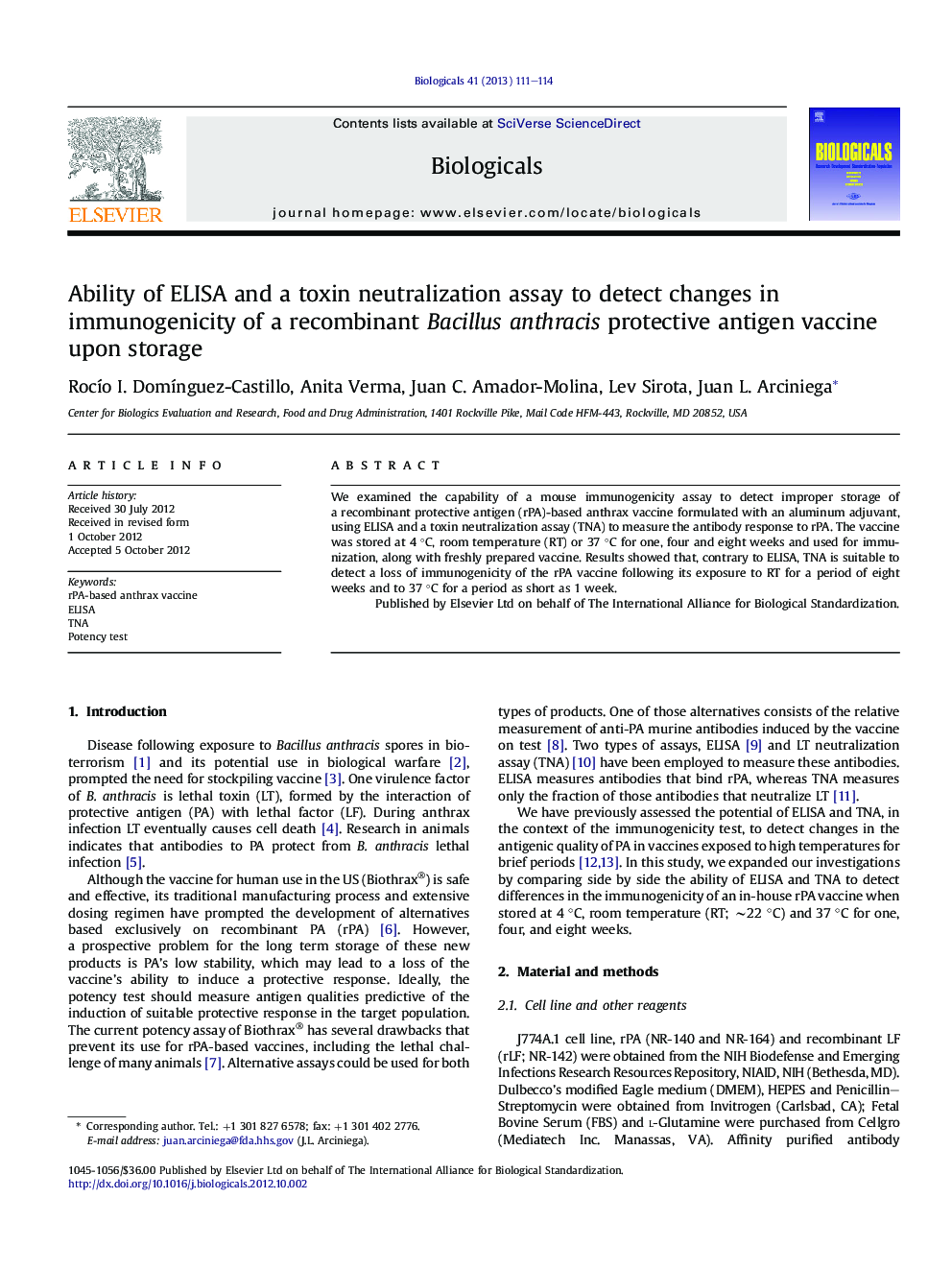| Article ID | Journal | Published Year | Pages | File Type |
|---|---|---|---|---|
| 2034056 | Biologicals | 2013 | 4 Pages |
We examined the capability of a mouse immunogenicity assay to detect improper storage of a recombinant protective antigen (rPA)-based anthrax vaccine formulated with an aluminum adjuvant, using ELISA and a toxin neutralization assay (TNA) to measure the antibody response to rPA. The vaccine was stored at 4 °C, room temperature (RT) or 37 °C for one, four and eight weeks and used for immunization, along with freshly prepared vaccine. Results showed that, contrary to ELISA, TNA is suitable to detect a loss of immunogenicity of the rPA vaccine following its exposure to RT for a period of eight weeks and to 37 °C for a period as short as 1 week.
► Immunogenicity was used to detect improper storage of a protective antigen (rPA) anthrax vaccine. ► ELISA and a toxin neutralization assay (TNA) were used to measure the antibodies to rPA in mice. ► Vaccine used for immunization was either prepared fresh, or stored at RT or 37 °C for 1, 4 or 8 weeks. ► Temperature-mediated loss of immunogenicity was detected if TNA was used. ► Unexpectedly, immunogenicity showed a temperature-mediated increase, when measured by ELISA.
